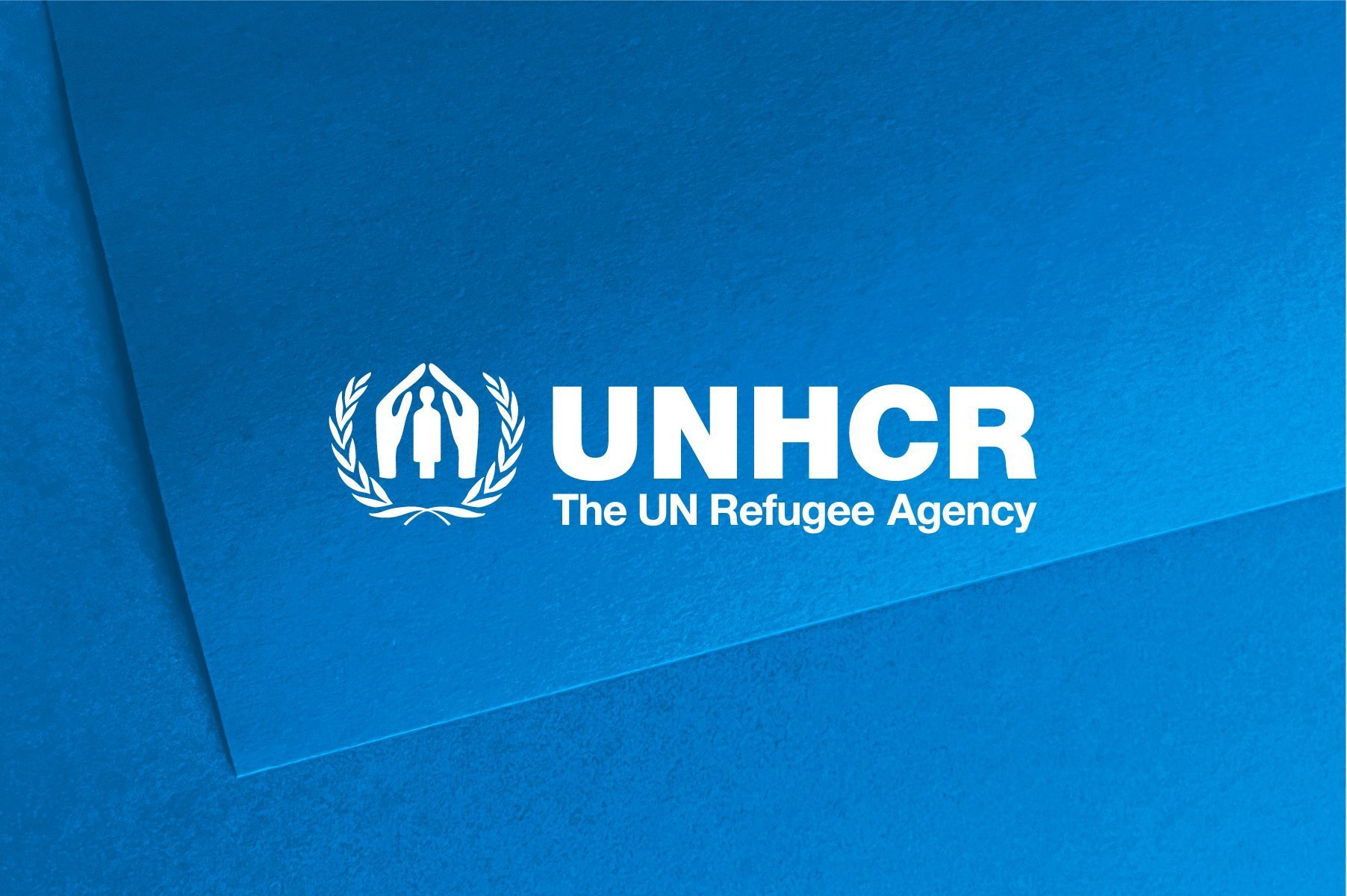UNHCR and partners in operation to help refugees amid winter storm
UNHCR and partners in operation to help refugees amid winter storm
Across Lebanon, more than 838,000 refugees including 120,000 living in flimsy tents are suddenly facing the onslaught of cold weather, rains and snowfall at higher altitudes as a massive storm system meteorologists named "Alexa" has moved over the Middle East region, affecting Lebanon, Syria, Turkey and Jordan.
With the support of the Lebanese Armed Forces, on Tuesday, UNHCR and NGO partners were able to speed up the distribution of additional emergency shelter kits - including plastic sheets, timber and tools - to thousands of refugees living in tents in the Bekaa, eastern Lebanon, so far the region most affected by the storm. Emergency teams continued on Wednesday despite blocked roads from the weather conditions. Alternative shelters are also being prepared for refugees whose tents may be affected by the snow, rain and flooding.
Some 125,000 refugees living in the Bekaa have already received winter kits and 55,000 more will be reached in the coming days. Humanitarian agencies working throughout Lebanon have already distributed 255,000 blankets and over 6,000 stoves in the past months. Some 45,000ATM cards with US$150 each have also been distributed to vulnerable families to buy additional stoves and fuel.
Storm Alexa struck Lebanon on Tuesday night bringing snow to higher areas and rain elsewhere, accompanied by high winds. According to forecasts, conditions are expected to remain difficult for several days, with further snow expected tonight. Reports from Syria and parts of Turkey spoke of similarly grim conditions there.
UNHCR is particularly concerned for the many refugees in Lebanon living in makeshift accommodation, as their homes are fragile and substandard. The number of refugees in Lebanon has increased five-fold over the last year.
"For the hundreds of thousands of refugees in Lebanon, as well as those in neighbouring countries and the displaced in Syria, a storm like this creates immense additional hardship and suffering," said Amin Awad, Director of UNHCR's Middle East and North Africa Bureau. "With Lebanon's help we're doing everything we can to get rapid additional help to people who most need it. This is on top of the winter preparations already done over the past months."
A host of other humanitarian agencies are working on the winter response in Lebanon, including the World Food Programme, the Norwegian Refugee Council, the International Organisation for Migration, Oxfam, Medair, Save the Children, World Vision, Humedica, GVC, Mercy Corps, IOCC, PU, Caritas, Concern, Acted, Danish Refugee Council (DRC), Handicap International and UNICEF.
The UN refugee agency began distributing thermal blankets and other items beginning in November. Across the Middle East UNHCR has distributed some 70,000 plastic tarpaulins to help refugees better prepare their tents and shelters for winter while some have received electric or kerosene heaters. Other refugees are receiving cash grants to purchase heaters.
WFP and its partners are meeting the food needs of newly arrived Syrian refugees in areas affected by the storm in Lebanon with food stocks enough to feed 150,000 people. Elsewhere in the country, the UN food agency is providing food assistance to over 600,000 Syrian refugees registered with UNHCR using electronic food vouchers.
Lebanon is at present the largest Syrian refugee-hosting country in the region, with 838,189 Syrians either registered as refugees or awaiting registration. Unlike other countries neighbouring Syria there are no established refugee camps. Instead people are living in the community in nearly 1,600 different areas.
Lebanon has responded generously to the influx, and earlier this week authorized the use of the Lebanese Armed Forces to help UNHCR in speeding the delivery of winter aid. As of Wednesday, efforts were focused on getting help to some of the worst affected sites in the Bekaa. In Turkey, UNHCR field teams were blocked from visiting camps around Kilis today due to snow blocking roads in that region.
With almost 2.3 million Syrian refugees around the region (a more than five-fold increase since this time in 2012) and millions more people displaced internally in Syria, winter conditions are a major worry across the humanitarian community.
Winter preparation work, involving improvements to shelters, heating, blankets and clothing, has been underway for months. The first cross-border airlift from Iraq into northeast Syria, bringing additional humanitarian winter materials to displaced populations there, is expected to launch later this week - weather permitting.
UNHCR MEDIA CONTACTS:
- Roberta Russo, Beirut, Lebanon: mob. +961-71-910-320
- Dana Sleiman, Beirut, Lebanon: mob. +961-3-827-323
- Lisa Abou Khaled, Bekaa, Lebanon: mob. + 961-71-880-070
- Bathoul Ahmed, Tripoli, Lebanon: mob. +961 70 100 740
- Peter Kessler, Amman, Jordan: mob. +962 79 631 7901
- Dan McNorton, Geneva: mob. +41 79 217 3011
WFP MEDIA CONTACTS:
- Peter Smerdon, Rome Tel: +39 06 6513 2150 / Mobile: +39 342 878 4107 [email protected]
- Abeer Etefa, Cairo Tel: +20 2 2528 1730 / Mobile: +2 010 666 34352 [email protected]









